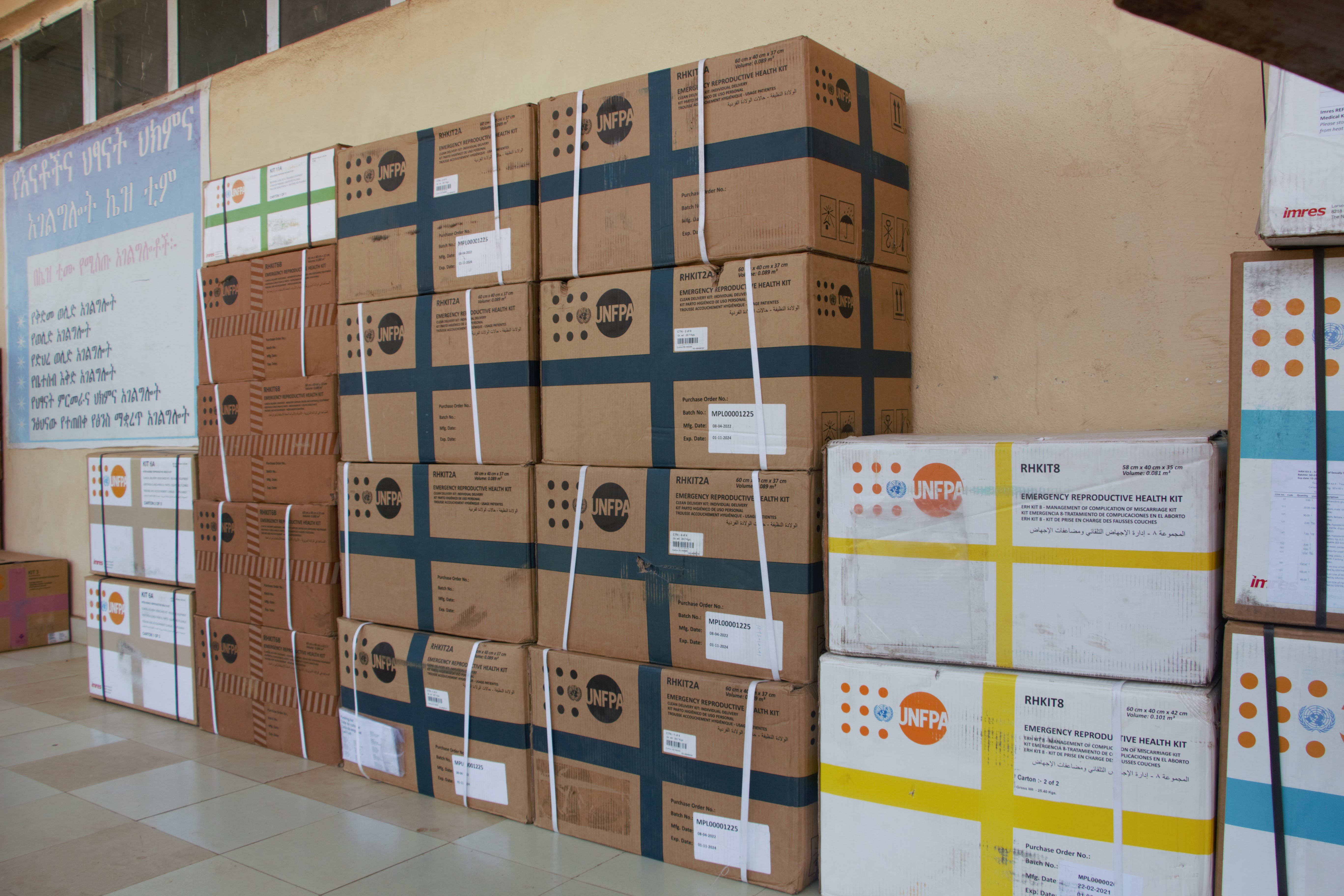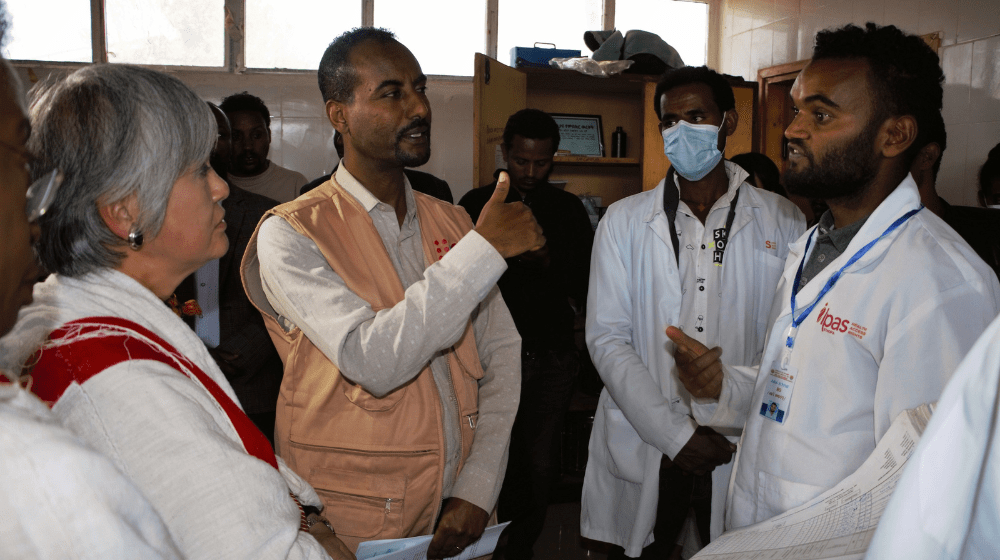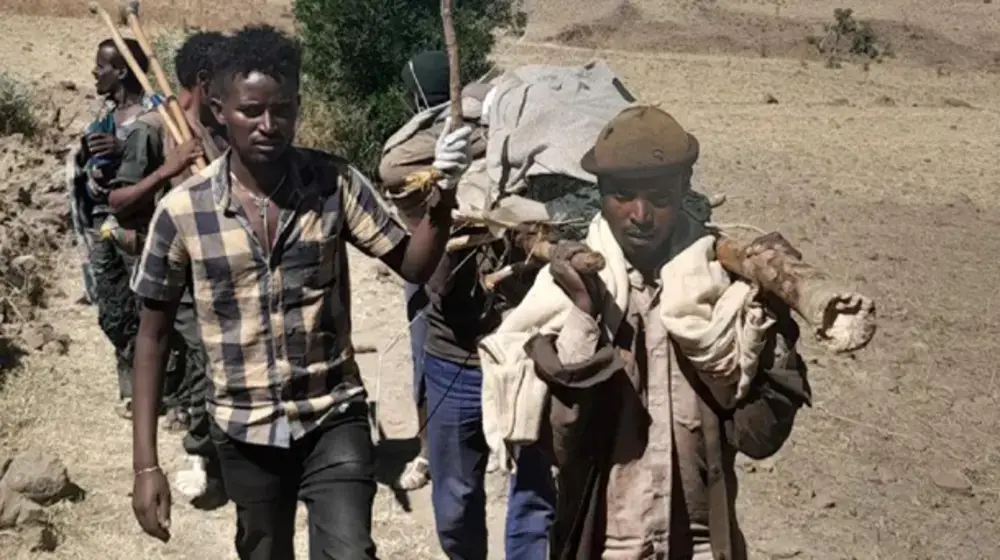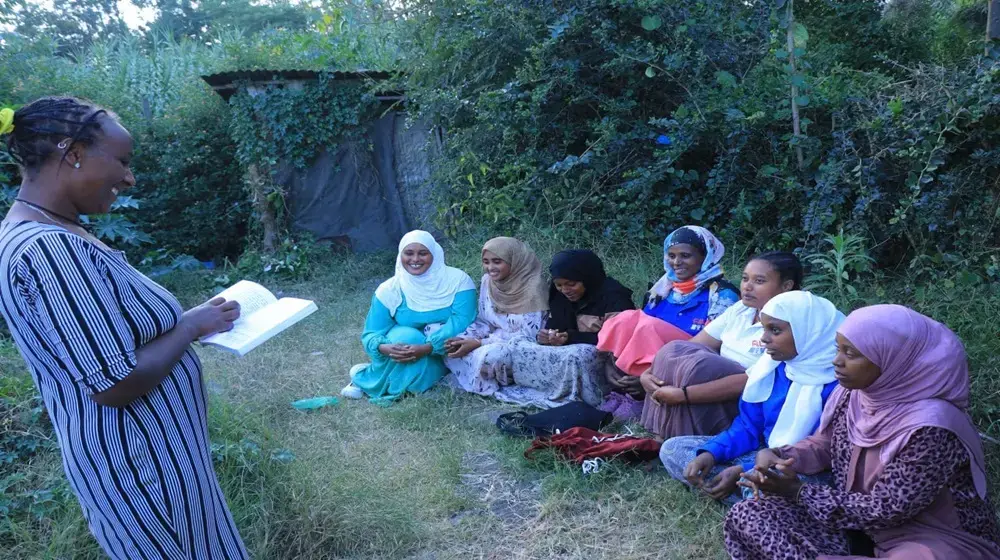The Embassy of Japan and UNFPA launched a project worth 1.1 million USD to improve women and adolescent girls' health and protection needs. The project will support five conflict-affected zones in Amhara and Benishangul-Gumuz regions.
In a launching ceremony in Injibara, Amhara region, H.E. Ms. ITO Takako, Ambassador of Japan to Ethiopia, said the project strengthens women's access to reproductive health services.
"The health sector is our top priority in the development cooperation in Ethiopia. Japan provides various medical equipment and mobile clinics to strengthen the overall health system in Ethiopia. The project we are launching is part of this effort,” she said.
Ato Takele Yeshiwas, Maternal Health Advisor at the Ministry of Health, said the Ethiopian government appreciates the support and strong partnership with Japan and UNFPA. "We have reduced maternal death in Ethiopia by half. That is the result of our strong partnership with our supporters,'' he said. ''These projects require coordination and partnership of the health sector in each woreda. The Ministry is committed to supporting that,'' he added.
The project will be implemented with the Ministry of Health, the Amhara and Benishangul-Gumuz Regional Health Bureaus, Public Health Emergency Management centers, Bureaus of Women, Children, and Youth Affairs, and relevant district sectoral offices.
The project will reach more than 160,000 women and adolescent youth with sexual and reproductive health services. To strengthen the system, 160 health providers will be trained on SRH and GBV prevention and response through the project. In addition, 40 health facilities will receive post-rape treatment and medical supplies for quality SRH and GBV response services.
Handover ceremony at Telilli Health Center

RH kits on behalf of targeted health facilities
The project launching ceremony included visiting a Teilli Woreda, Injubara Zone health center.
The center received the emergency RH kits on behalf of targeted health facilities. Selected women and girls from the community also received female dignity kits from the Ambassador and UNFPA’s Representative.
On average, five pregnant women deliver daily at the Teilli health center. Despite the lack of supplies and skilled manpower, including midwives, the health center has reduced maternal death in the five designated kebeles.
"We have no record of maternal death over the year,'' said Nigussie Tilahun, the Director at the health center. The health center was struggling with a lack of MVA sets, and the director appreciated the SRH kits provided by the Japan fund through UNFPA.
''We are grateful for the support. We hope it continues. We have shortages of delivery coaches, essential drugs, and manpower. An ambulance is another challenge. There is only one ambulance for the entire woreda, and we wait to send mothers to the hospital,'' the director said.
The health center provides family planning services and a maternal waiting room where pregnant women from remote areas stay until delivery. It also has a youth-friendly safe space to learn about reproductive health.
Ms. Suzanne Mandong, UNFPA Representative in Ethiopia, appreciated the contribution of the people and the Embassy of Japan. She said that the support allows UNFPA to enhance the delivery of critical maternal and reproductive health services to women, girls, and young people, including GBV survivors impacted by conflicts, and create a resilient system.





